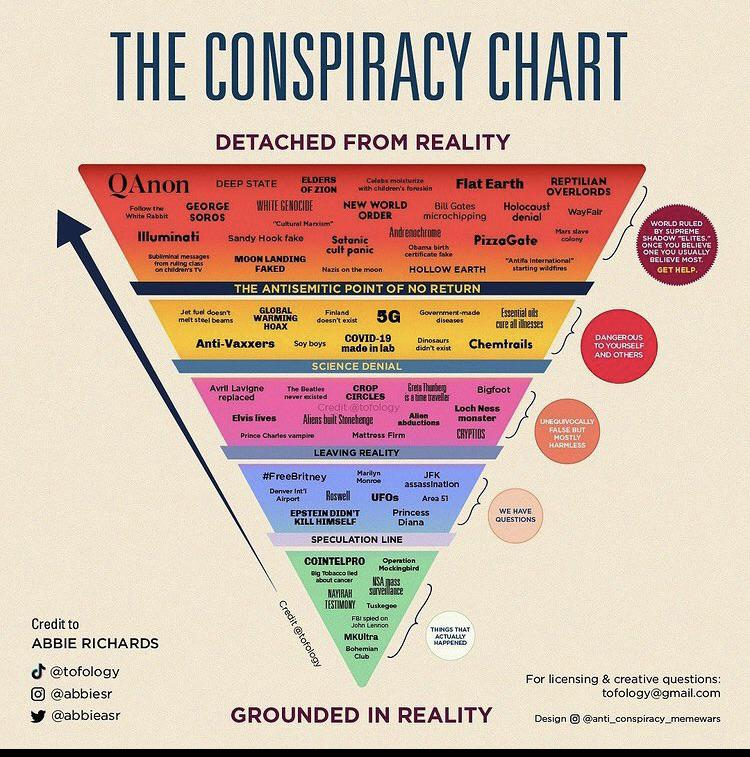Not directly about media manipulation, but I recommend The Demon Haunted World: Science as a Candle in the Dark, by Carl Sagan. It is mostly about how to be skeptical about claims that people make, and goes through many cases of how different groups try to manipulate people and trick them into believing false ideas. The audiobook is read by Carey Elwes too, which is a plus :)
As much as I love Sagan I think I might op for the audio book.
sort of relevant

Non-pixelated version:

Do people unironically believe that Finland doesn’t exist?
Greta Thunberg is a time traveller
lol wut.
much better thank you
If you want to dig in really deep, Horkheimer and Adorno wrote about the “Culture Industry” in the mid-20th century and how even outside of working hours, we are still forced to perform a sort of labor in the consumption of media through our leisure time, movies, tv, music, etc. It’s not so much manipulation of the obvious media like news and such, but a far more subtle mechanism that tells you not only what to desire, but how to desire. The whole thing may be more complicated than you want, and this was a very reductive summary, but I find it to be prescient even 75ish years later.
I sincerely mean no sarcasm in this but that has got to be the best answer yet. Thank you very much and for typing it out.
I did find this https://en.wikipedia.org/wiki/Culture_industry
But if you have another recommendation I’m interested too.
This isn’t bad. It has some counterpoints as well. The trouble with the concept is that the original material is a philosophical product, and most material online is behind academic paywalls or just some dude’s blog. Hope this is useful!
Thank you, I appreciate that. Sci-hub often has those papers available that are made hard to access by academia.
It’s hard, right? Unless you see something yourself, you’re trusting someone, or at least trusting that the evidence for it isn’t fabricated. The century long shortcut that video evidence specifically has been is coming to an end.
If you trust the EU to any degree, they established the EDMO, which is exactly the kind of resource you’re looking for.
It’s not what you asked, but I’d also suggest supplementing with sources other than mass media. It tends to focus an a few dramatic things, and while that is often important, it can actually distort the big picture in the process. I don’t mean “alternative media”, I mean looking at scholarly sources on the exact thing you’re interested in, like a UN report, trusted statistical data or a personal account from someone with a lot of adjacent experience and no vested interests.
Probably a dumb question but what about Wikipedia? For about the past six months i have been pretty much addicted to it.
I too, spend a lot of time on Wikipedia. It’s not nearly as unreliable as the old school people seem to think, based on my experience. For hard data, there’s typically a citation you can check to be really sure.
This maybe stupid but what usually happens is I read a good article and see the references and usually click on those to learn more. Though since I have been reading about historical terrorist stuff I think I will probably get arrested by the FBI lol.
That’s the opposite of stupid. That’s exactly what you should do.
Just think about your thoughts after taking in some media. If you feel a certain way why? What made you feel that way? Who created the media, why have they made it the way they have.
Great response!
Media is paid for by advertising money. Advertisers pay for the most number of impressions sold, not for the accuracy of reporting.
The more controversial and (negative) emotion provoking, the more impressions and this profit.
The media will never report on good things happening, except for an occasional fluff piece.
Truth isn’t controversial, it never is.
Learn to evaluate for yourself. No media source, influencer or celebrity can replace simply looking for yourself. If you can’t go and see it yourself, it probably doesn’t concern you.
Unless you have the power to do something about the information you’re being given, ignore it!
My personal rule is: “if I’m reading it or watching it, there is an agenda behind it.” I always think to myself, “if it’s being put out by the media, it’s very likely that the complete opposite must be true.”
Doubt what you’re being told to believe and go and LOOK for yourself. Don’t THINK. Go and LOOK.
If you can’t look directly and do something about it, go and find something you can directly observe and find a way to help make someone’s life better. Even if it’s just to put a smile on their face.





